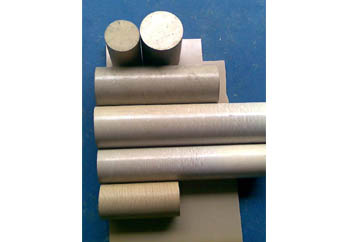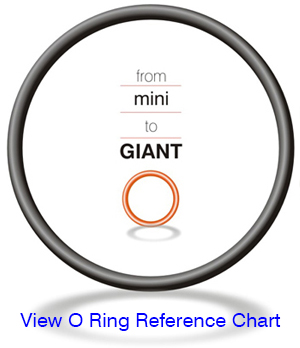Welcome To Mech Spares Private Limited
Polyphenylene Sulfide (PPS)

Polyphenylene Sulfide (PPS) is an organic polymer consisting of aromatic rings linked with sulfides. Synthetic fiber and textiles derived from this polymer are known to resist chemical and thermal attack. PPS is used to make filter fabric for coalboilers, papermakingfelts, electrical insulation, specialty membranes, gaskets and packings. PPS is the precursor to a conducting polymer of the semi-flexible rod polymer family. The PPS, which is otherwise insulating, can be converted to the semiconducting form by oxidation or use of dopants.
Polyphenylene sulfide is an engineering plastic, commonly used today as a high performance thermoplastic. PPS can be molded, extruded, or machined to high tolerances. In its pure solid form, it may be opaque white to light tan in color. Maximum service temperature is 218°C (424°F). PPS has not been found to dissolve in any solvent at temperatures below ±200 °C (392°F). An easy way to identify the compound is by the metallic sound it makes when struck.
PPS is one of the most important high temperature thermoplastic polymers because it exhibits a number of desirable properties. These properties include resistance to heat, acids and alkalies, and to mildew, to bleaches, aging, sunlight, and abrasion. It absorbs only small amounts of solvents and resists dyeing.
| General Properties : | |||
|---|---|---|---|
| Physical | Nominal Value | Unit | Test Method |
| Specific Gravity | |||
| — | 1.35 to 1.36 | ASTM D792 | |
| 73°F | 1.31 to 1.81 | g/cm3 | ISO 1183 |
| Melt Mass-Flow Rate (MFR) (315°C/5.0 kg) | 75 to 200 | g/10 min | ASTM D1238 |
| Molding Shrinkage | |||
| Flow : 73°F | 3.0E-4 to 0.014 | in/in | ASTM D955 |
| Across Flow : 73°F | 4.3E-3 to 0.015 | in/in | ASTM D955 |
| 73°F | 0.18 to 2.3 | % | ISO 294-4 |
| Water Absorption (73°F, 24 hr) | 0.020 to 0.031 | % | ASTM D570 |
| Mechanical | Nominal Value | Unit | Test Method |
| Tensile Modulus | |||
| 73°F | 325000 to 4.06E+6 | psi | ASTM D638 |
| 73°F | 491000 to 2.19E+6 | psi | ISO 527-2 |
| Tensile Strength | |||
| Yield, 73°F | 7250 to 23200 | psi | ASTM D638 |
| Break, 73°F | 7250 to 23200 | psi | ASTM D638 |
| Break, 73°F | 9090 to 13400 | psi | ISO 527-2 |
| 73°F | 5880 to 25300 | psi | ASTM D638 |
| Tensile Elongation | |||
| Yield, 73°F | 0.91 to 1.6 | % | ASTM D638 |
| Break, 73°F | 0.40 to 4.1 | % | ASTM D638 |
| Flexural Modulus | |||
| 73°F | 348000 to 3.54E+6 | psi | ASTM D790 |
| 73°F | 522000 to 653000 | psi | ISO 178 |
| Flexural Strength | |||
| 73°F | 8340 to 36800 | psi | ASTM D790 |
| 73°F | 9320 to 22000 | psi | ISO 178 |
| Coefficient of Friction | 0.090 to 0.40 | ASTM D1894 | |
| Impact | Nominal Value | Unit | Test Method |
| Charpy Notched Impact Strength (73°F) | 0.52 to 3.8 | ft·lb/in2 | ISO 179 |
| Charpy Notched Impact Strength (73°F) | 0.52 to 3.8 | ft·lb/in2 | ISO 179 |
| CharpyUnnotched Impact Strength (73°F) | 0.52 to 24 | ft·lb/in2 | ISO 179 |
| CharpyUnnotched Impact Strength (73°F) | 0.52 to 24 | ft·lb/in2 | ISO 179 |
| Notched Izod Impact (73°F) | 0.46 to 1.5 | ft·lb/in | ASTM D256 |
| UnnotchedIzod Impact (73°F) | 1.0 to 37 | ft·lb/in | ASTM D256 |
| Hardness | Nominal Value | Unit | Test Method |
| Rockwell Hardness (73°F) | 92 to 126 | – | ASTM D785 |
| Thermal | Nominal Value | Unit | Test Method |
| Deflection Temperature Under Load | |||
| 66 psi, Unannealed | 531 to 538 | °F | ASTM D648 |
| 66 psi, Unannealed | 531 to 538 | °F | ASTM D648 |
| 264 psi, Unannealed | 214 to 512 | °F | ASTM D648 |
| Melting Temperature | 532 to 536 | °F | ISO 11357-3 |
| CLTE | |||
| Flow | 7.3E-6 to 2.9E-5 | in/in/°F | ASTM D696 |
| Flow | 2.8E-6 to 3.5E-5 | in/in/°F | ISO 11359-2 |
| Transverse | 2.8E-6 to 3.5E-5 | in/in/°F | ISO 11359-2 |
| Thermal Conductivity (73°F) | 2.0 to 140 | Btu·in/hr/ft2/°F | ASTM C177 |
| Electrical | Nominal Value | Unit | Test Method |
| Surface Resistivity | 6.0 to 2.5E+15 | ohms | ASTM D257 |
| Volume Resistivity | |||
| 73°F | 10 to 2.5E+16 | ohms·cm | ASTM D257 |
| 73°F | 1.0E+11 to 2.0E+16 | ohms·cm | IEC 60093 |
| Dielectric Strength | |||
| 73°F | 400 to 450 | V/mil | ASTM D149 |
| 73°F | 430 to 770 | V/mil | IEC 60243-1 |
| Dielectric Constant (73°F) | 3.00 to 3.05 | ASTM D150 | |
| Dissipation Factor | |||
| 73°F | 6.5E-4 to 5.0E-3 | ASTM D150 | |
| 73°F | 6.5E-4 to 5.0E-3 | IEC 60250 | |
| Arc Resistance | 118 to 125 | sec | ASTM D495 |
| Comparative Tracking Index | 100 to 151 | V | IEC 60112 |
| Injection | Nominal Value | Unit | |
| Drying Temperature | 250 to 325 | °F | |
| Drying Time | 3.0 to 6.0 | hr | |
| Drying Time | 3.0 to 6.0 | hr | |
| Suggested Max Moisture | 0.015 to 0.020 | % | |
| Rear Temperature | 464 to 613 | °F | |
| Middle Temperature | 567 to 625 | °F | |
| Front Temperature | 584 to 613 | °F | |
| Nozzle Temperature | 580 to 617 | °F | |
| Processing (Melt) Temp | 596 to 635 | °F | |
| Mold Temperature | 292 to 316 | °F | |
| Injection Pressure | 8700 to 16500 | psi | |
| Holding Pressure | 6530 to 10500 | psi | |
| Back Pressure | 45.0 to 230 | psi | |
| Screw Speed | 55 to 128 | rpm | |
Products
- Rotary & General Sealing
- O Rings
- V Rings
- Hydraulic Rod Seals
- Wiper Seal
- Hydraulic Others
- Pneumatic Seals
- Pneumatic Rod Seals
- Piston Seals
- Rubber Sheets
- Expansion Joints & Bellows
- Fabric Bellows
- Gaskets
- Rubber Plastic & PVC Caps
- Engineering Plastic
- General Products
- Custom Made Rubber
- PTFE Products
- Pu Products
- Diaphragms
Technical Data
© Mech Spares Pvt. Ltd. All rights reserved.
Website Design by EWEBAC


